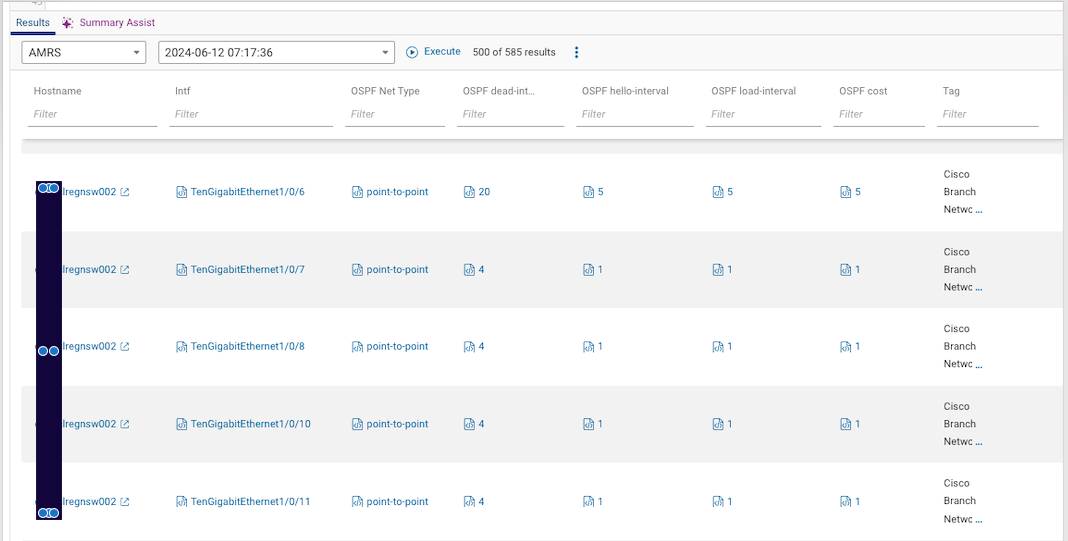Using the same logic in my previous post to grab ip helper addresses, I was thinking what else could I re-use this kind of script to grab, and it was for our OSPF configuration.
If you are configuring OSPF type/timers/intervals/cost on interfaces, you can use this script to grab the values on each interface. This will make it easy to set up a violation check for anyone that wants.
What would be ideal is if I could group the interfaces per device
host-XYZ. intf1: Type: DeadInterval: HelloInterval: Load : Cost
intf2: Type: DeadInterval: HelloInterval: Load : Cost
intf3: Type: DeadInterval: HelloInterval: Load : Cost
host-ABC. intf1: Type: DeadInterval: HelloInterval: Load : Cost
intf2: Type: DeadInterval: HelloInterval: Load : Cost
intf3: Type: DeadInterval: HelloInterval: Load : Cost
// standard config
// interface {ifaceName:string}
// ip ospf network point-to-point
// ip ospf dead-interval 20
// ip ospf hello-interval 5
// load-interval 30
// ip ospf cost 500
pattern = ```
interface {IntName:string}
ip ospf network {type:string}
ip ospf dead-interval {deadInterval:number}
ip ospf hello-interval {helloInterval:number}
load-interval {load:number}
ip ospf cost {cost:number}
```;
foreach device in network.devices
// filter things as you'd like
// where "Branch" in device.tagNames && "Core" in device.tagNames && "C9500" in device.tagNames
let outputs = device.outputs
foreach command in outputs.commands
where command.commandType == CommandType.CONFIG
let parsed = parseConfigBlocks(OS.IOS_XE , command.response)
foreach match in blockMatches(parsed, pattern)
let x = blockMatches(device.files.config, pattern)
let type = (foreach ip in x where match.data.type == ip.data.type select distinct toString(ip.data.type))
let dead = (foreach ip in x where match.data.deadInterval == ip.data.deadInterval select distinct toString(ip.data.deadInterval))
let hello = (foreach ip in x where match.data.helloInterval == ip.data.helloInterval select distinct toString(ip.data.helloInterval))
let load = (foreach ip in x where match.data.load == ip.data.load select distinct toString(ip.data.load))
let cost = (foreach ip in x where match.data.cost == ip.data.cost select distinct toString(ip.data.cost))
select distinct{
Hostname:device.name,
Intf:match.data.IntName,
"OSPF Net Type":type,
"OSPF dead-interval":dead,
"OSPF hello-interval":hello,
"OSPF load-interval":load,
"OSPF cost":cost,
Tag: device.tagNames
}
results:







